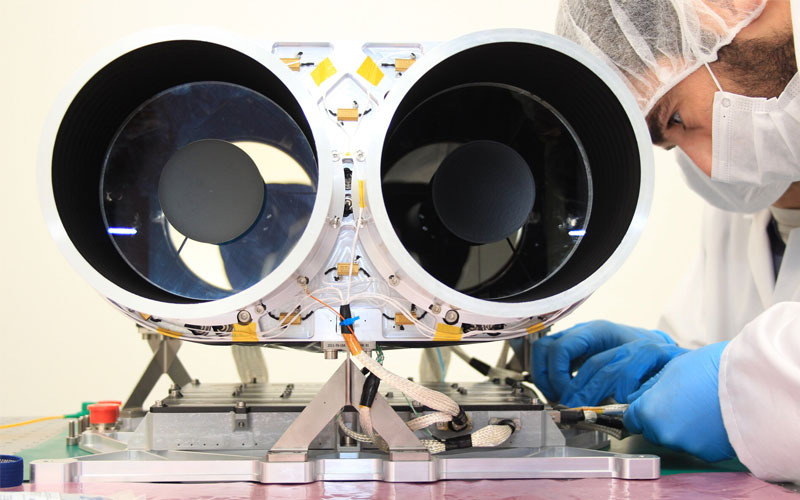
The European Space Agency has published the call for the development and operation of its ARRAKIHS mission.
ARRAKIHS (Analysis of Resolved Remnants of Accreted galaxies as a Key Instrument for Halo Surveys) was selected as ESA’s second Fast mission in November 2022. The agency launched this new mission class in May 2018. F-class missions are required to take no longer than a decade to develop from initial selection to their launch.
With a launch scheduled for the early 2030s, ARRAKIHS will be tasked with studying the nature of dark matter in the universe. To do this, the probe will image 115 nearby galaxies and their surroundings using a pair of innovative binocular telescopes, one of which will be fitted with infrared filters and one with visible filters. The binocular telescopes have been developed by SATLANTIS and are based on the company’s iSIM-170 binocular telescope, which was flight-proven aboard the International Space Station. The telescopes will be fitted to a small satellite with a mass of around 300 kilograms. Once launched, it will be placed in a low polar orbit to begin its observations.
On 8 March, ESA published a call for the definition, development, and operation of the ARRAKIHS mission. The call includes Phases A (feasibility), B (preliminary definition), C (detailed definition), D (qualification and production), and E1 (initial utilization).
ARRAKIHS will be the first ESA Science Programme mission to be led from Spain. The mission will be coordinated by the Institute of Physics of Cantabria, which is a joint initiative run by the Spanish National Research Council and the University of Cantabria.

